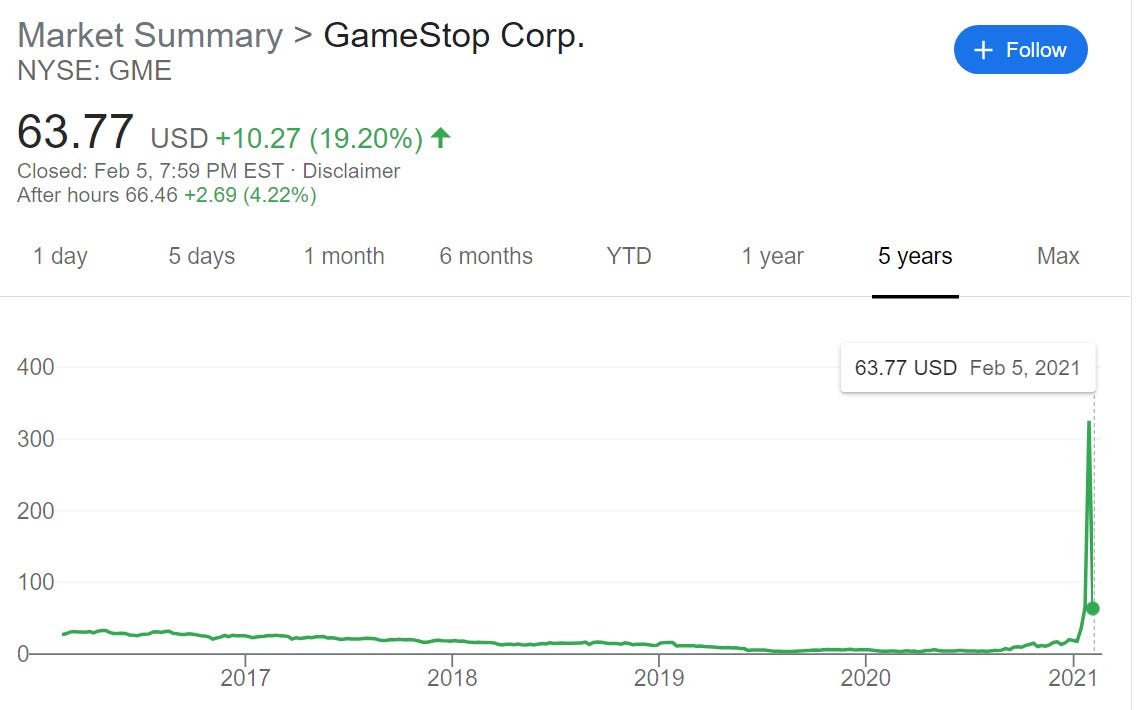Link: https://www.ft.com/content/3f6b47f9-70c7-4839-8bb4-6a62f1bd39e0
Graph:

Excerpt:
It was a routine regulatory filing, the kind hedge funds must make every three months, where Melvin Capital first showed its hand.
The “Form 13F” filing that landed on August 14 last year listed 91 positions it held at the end of the second quarter, including shareholdings in household names from Microsoft and Amazon to Crocs and Domino’s Pizza. Halfway down the list: an apparently innocuous bet against GameStop, a struggling video game retailer.
That the New York hedge fund should think GameStop’s shares were going lower was hardly remarkable — many others were betting the same way. Wall Street analysts had sell ratings on the stock and the retailer’s prospects looked grim as gamers switched to downloads. But by using the options market for the bet, which forced it to disclose the position, Melvin had put a target on itself.
Author(s): Ortenca Aliaj and Michael Mackenzie in New York and Laurence Fletcher in London
Publication Date: 6 February 2021
Publication Site: Financial Times

